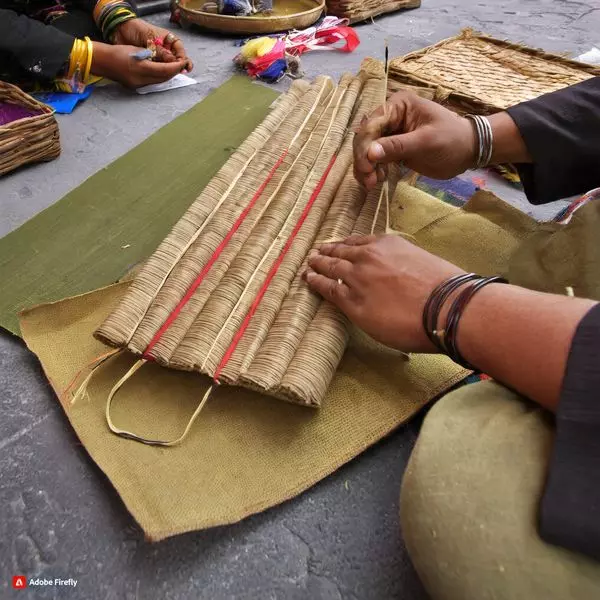In a significant stride towards preserving the cultural heritage of Jammu and Kashmir, Skill India’s Pilot Project, a part of the Pradhan Mantri Kaushal Vikas Yojana (PMKVY), has successfully breathed new life into the dying Namda craft. Nearly 2,200 candidates from six districts in the state have undergone training, marking a commendable effort in skill development and heritage preservation.
Public-Private Partnership Model:
The revival of Namda craft stands as a testament to the effectiveness of the public-private partnership (PPP) model in the realm of skill development. Implemented in collaboration with local industry partners, the project has seamlessly integrated the efforts of government initiatives with the expertise of private enterprises, ensuring a holistic approach to reviving the traditional art form.
Training and Milestones:
Under the initiative, 2,200 candidates have received comprehensive training in Namda craft, achieving a noteworthy milestone in the preservation of this traditional art. The training has been conducted across six districts, including Srinagar, Baramulla, Ganderbal, Bandipora, Budgam, and Anantnag. This concerted effort has not only empowered local weavers and artisans but has also injected vitality into a craft that was on the verge of extinction.
Government’s Commitment and Vision:
The success of the Namda project underscores the unwavering commitment of the government, particularly under the visionary leadership of Prime Minister Shri Narendra Modi. The government’s dedication to skilling, reskilling, and upskilling India’s youth is showcased through initiatives like PMKVY, which align with the broader vision of ‘Naya Bharat, Naye Avsar, Nayi Samridhi.’ The Namda project, backed by industry partners like Mir Handicrafts and Srinagar Carpet Training and Market Centre, demonstrates the potential of public-private partnerships in fostering skill development and attracting investments for economic growth.
Acknowledging the Achievement:
Commending the achievement, Shri Rajeev Chandrasekhar, Minister of Skill Development and Entrepreneurship, expressed satisfaction in witnessing the tangible outcomes of the Namda project. Launched in 2021, the project resonates with the vision of creating new opportunities and prosperities, aligning with PM Modi’s Skill India initiative.
Background and Need for Preservation:
Shri Rajeev Chandrasekhar’s visit to Jammu & Kashmir in 2021 laid the foundation for the Namda project. Recognizing the importance of preserving dying traditional crafts in the region, especially considering the significant role of the handicrafts sector in the local economy and employment generation, the project was conceived.
Details of Namda Craft:
Namda craft involves crafting rugs made of sheep wool through the felting technique, deviating from the conventional weaving process. A decline in the export of this craft between 1998 and 2008 prompted the Ministry of Skill Development and Entrepreneurship (MSDE) to initiate this special project under PMKVY. The short-term training curriculum was designed to address challenges such as low availability of raw material, a lack of skilled manpower, and marketing techniques.
Industry-Based Training Program:
Implemented in 25 batches over three cycles of training, each program lasted approximately three and a half months, with the entire project spanning 14-16 months. The Namda project is not just a training program; it is an industry-based initiative that empowers beneficiaries to actively contribute to preserving and reviving the rich heritage associated with Namda craft in Kashmir. This, in turn, is expected to enhance the employability prospects of existing artisans in the Namda crafts cluster in Kashmir.
The Namda project’s success not only marks a significant achievement in the revitalization of a dying craft but also exemplifies the potency of collaborative efforts between the government and private sector in the realm of skill development and heritage preservation. As the candidates trained under this initiative become torchbearers of Namda craft, the project paves the way for a brighter future for both the artisans and the rich cultural legacy of Jammu and Kashmir.
Also Read: India’s Annual CO2 Emissions Continue To Rise For Consecutive Second Year: Report













